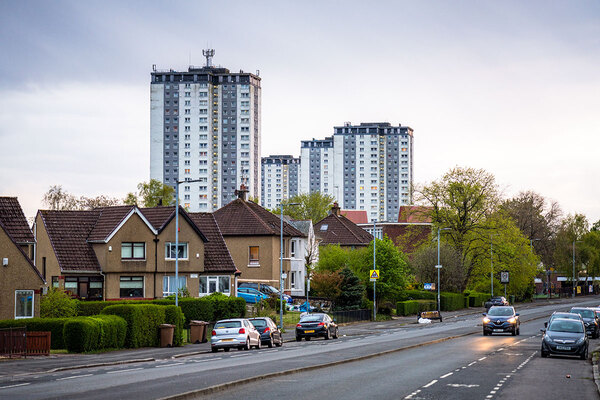You are viewing 1 of your 1 free articles
Scottish housing associations call for national ‘pay rent’ campaign
Housing associations in Scotland are calling on the Scottish government to introduce a “major national campaign” highlighting the importance of paying the rent as evictions restrictions lift.
In a new report, the Scottish Federation of Housing Associations (SFHA) said a new campaign should highlight “the importance of rent payment by tenants who are able to do so”, detail available support for tenants and explain “how non-payment of rent could affect investment in homes and services in the future”.
The report argued that housing associations and co-operatives in Scotland make “every effort” to prevent evictions and do so only as a “last resort”, focusing instead on tenancy sustainment.
It comes after a ban on evictions being enforced except in cases involving anti-social or criminal activity was lifted across most of the country at the end of May.
The ban remains in place in areas under level three and level four coronavirus restrictions until the end of September, but nowhere is currently in that category.
Housing associations in Scotland have promised not to evict anyone because of arrears where they engage with the landlord to get payments back on track.
The report pointed to figures from the Scottish Housing Regulator (SHR), which showed that among the 290,000 homes owned by social landlords in Scotland only 601 court actions were issued in 2020/21.
Of these, only 88 resulted in evictions, mostly for non-payment of rent – down from 764 in 2019/20.
Legal intervention “usually enables social landlords to avoid evictions”, the report said.
“As the ban is lifted, we are likely to see an increase in court actions as social landlords grapple with cases where tenants refuse to engage with efforts they have made to offer support,” it added.
SHR data for March 2021 showed total arrears across the sector of £60.1m, the lowest level since the beginning of the pandemic a year previously.
But the SFHA warned that this statistic “masks the fact that individuals will still face hardship”.
As well as a campaign, the body is calling on ministers to increase financial support for struggling tenants including through Discretionary Housing Payments and the Scottish Welfare Fund.
And it urged the Scottish government to continue campaigning for the £20-a-week uplift to Universal Credit introduced by the UK government during the pandemic to continue beyond the 30 September cut-off date.
“In a worst-case scenario, housing associations may be forced to introduce overall rent increases if a large proportion of tenants build up significant arrears,” the report said.
“As we transition out of the eviction ban, it is important to retain the option for eviction alongside the wider role to work in partnership with public bodies to prevent homelessness.”
Housing associations in Scotland are required to work with councils to make sure an evicted tenant has somewhere to go to prevent them from becoming homeless.
Sally Thomas, chief executive of the SFHA, said: “Our report has demonstrated the lengths to which housing associations have historically prioritised sustaining tenancies and avoiding evictions, and even more so in the last year.
“There is much to be learned from this practice within our sector, for all partners and other sectors, as we move further into the recovery process, supporting people to return to, and maintain, financial stability.
“This is in the long-term best interests of the people and communities of Scotland.”
Sign up for our Scotland newsletter
Already have an account? Click here to manage your newsletters











